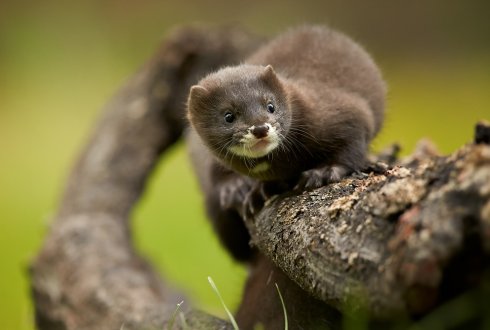Recent surveillance suggests that SARS-CoV-2 is evolving in mink through viral mutation and has been reintroduced to humans.
November 12, 2020

The risk of susceptible animals, such as mink, becoming a reservoir for SARS-CoV-2 — the virus that causes COVID-19 — generates worldwide concern, as it could pose a continued public health risk and lead to future spillover events to humans, according to a statement from the World Organization for Animal Health (OIE).
OIE said recent surveillance findings in Denmark suggest that the SARS-CoV-2 virus, introduced into minks through contact with humans, is evolving through viral mutation and has been reintroduced to people.
OIE acknowledged that such events could have important public health implications. While the COVID-19 pandemic is currently sustained through human-to-human transmission, there are concerns that the introduction and circulation of new virus strains in humans could result in modifications of transmissibility or virulence and decreased treatment and vaccine efficacy, the international agency said.
Still, the full consequences remain unknown, and further investigation is needed to fully understand the impact of these mutations.
Close collaboration between animal and public health authorities is imperative to better identify and reduce the impact of this disease, OIE said. Furthermore, a global One Health approach is needed to understand risks for animal and human health as well as ecosystem health as a whole.
OIE called on countries to protect animal health and welfare and, consequently, public health by implementing effective risk management measures, including:
Prevent the transmission of SARS-CoV-2 between humans and susceptible animals by implementing national risk reduction strategies;
Monitor susceptible animals, such as minks and racoon dogs, as well as humans in close contact with them, for SARS-CoV-2 infection by adopting a One Health approach. Active monitoring is recommended as it might be difficult to detect early infections in these animals, especially minks;
Report animal cases to OIE through the World Animal Health Information System (WAHIS), and
Share genetic sequences of SARS-CoV-2 viruses isolated from animals and other research findings with the global health community.
To support countries in the implementation of these measures, OIE has developed guidelines for people working with susceptible farmed animals as well as with wild mammals in the era of the COVID-19 pandemic.
OIE said it will continue to engage with its members, experts and partners, notably the World Health Organization and the U.N. Food & Agriculture Organization, to update technical guidance as new scientific findings and information become available.
For more information, visit the OIE web portal on COVID-19.
You May Also Like

.png?width=300&auto=webp&quality=80&disable=upscale)

